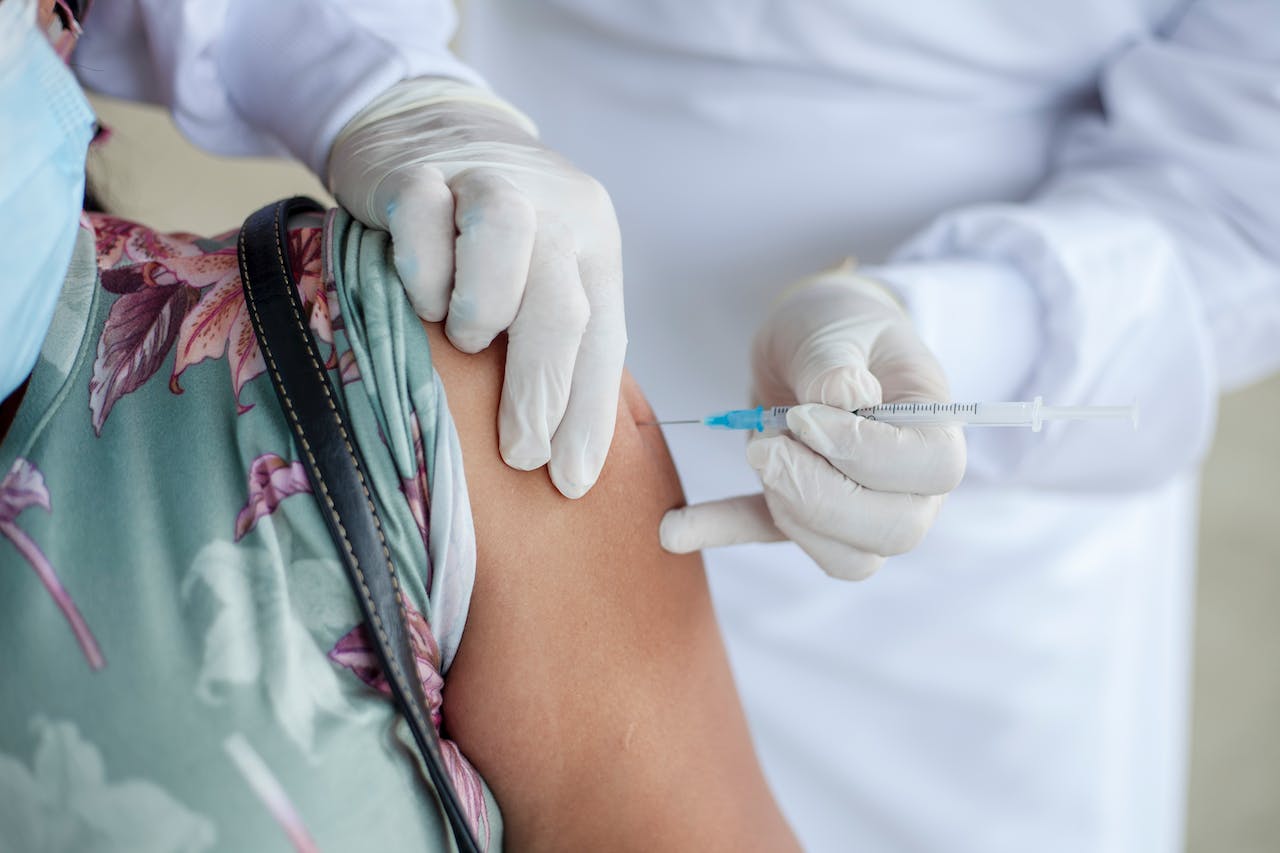The staff of Healthy Men Inc., including health experts and dads, has received many questions about this season’s flu vaccine and we’ve put together this list of the top 10 issues that expectant dads, moms, and family members should consider when making a decision about getting the flu vaccine.
- Flu is not just a bad cold
Flu is a serious condition, even for people in the best of health. Each year about flu-related illness sends more than 300,000 to the hospital and kills 25,000. Because of the changes pregnancy naturally causes (pregnancy decreases immunologic responses and places a strain on the expectant mom’s heart and lungs), expectant moms are already at high risk of developing serious flu complications—and so are the babies they’re carrying.
- Flu vaccination makes sense for everyone in the expectant family’s orbit
Everyone over six months of age living in the household—or who will have frequent contact with family, including as grandparents and other visitors—would benefit from flu vaccine. Flu vaccinations not only protect the vaccinated person, but they also reduce the likelihood that they’ll spread the disease to others. They also reduce the impact that a case of the flu can have on the already chaotic and stressful day-to-day lives of expectant parents, including severe illness, lost time at work, childcare issues, and just plain feeling horrible.
- Major health professional organizations in maternal care strongly recommend vaccinations for expectant families
The American College of Obstetricians and Gynecologists (ACOG) and the Association of Women’s Health, Obstetric and Neonatal Nurses (AWHONN) both strongly recommend maternal flu vaccination and recognize the overall safety of flu vaccines at any time during pregnancy. That these and other respected medical, nursing, and pharmacy professional associations have consistently maintained this position for decades carries a lot of weight.
- A case of seasonal flu is more than just an inconvenience for the baby
During pregnancy a case of the flu, can be very dangerous. Having even a mild case of the flu while pregnant can cause birth defects, preterm labor, and premature birth; and can increase the risk of life-threatening illness and impair the baby’s birth weight and the development of his or her lungs and heart.
- You cannot get a case of flu from a flu vaccine
Vaccines can sometimes produce flu-like symptoms, but that’s not because ofan infection of the flu; it’s the body’s immune system kicking into action and getting ready to fight off infection. The extent of symptoms after vaccinations, if any, are not at all harmful to mom, baby, or dad.
- Flu vaccines are safe when given at any time during pregnancy
Over the past 50 years or so, hundreds of millions of people have been vaccinated against the flu, with very few side negative effects (the most common being discomfort at the spot where the shot was administered. In more recent decades, tens of millions of expectant moms have been vaccinated—with no harm to them or their unborn babies. On the other hand, the risks of getting the flu (including disruption of work-, school-, and home life; not to mention the very real dangers of hospitalization and/or death) far outweigh any risks from the vaccine.
- Ethnic and minority expectant families may be at increased risk for serious flu cases
Compared to White adults, flu hospitalization rates are nearly 80% higher for Blacks, 30% higher for American Indians/Alaska Natives (AI/AN), and 20% higher for Hispanics.
- COVID vaccinations do not protect against flu
The viruses that cause COVID and influenza are very different. For that reason, while it’s important for you and your family to get vaccinated against COVID, doing so will not protect you from the flu. Nor will getting a flu shot protect you against COVID.
- Being vaccinated for flu in prior years does not provide immunity this year
The strains of flu circulating each year in the US are unique. Seasonal flu vaccinations are designed with specific strains that are most likely to be circulating that season. Also, immunity from flu is not permanent and, as we’ve seen with COVID, it will decrease over time.
- Taking steps to prevent infection from flu are still important after vaccination
The flu virus is very hardy. It can survive on hard surfaces for up to 24-48 hours, including common things such as supermarket keypads, gas pumps, office equipment, and phones. This way of passing along an infection is in addition to its spread from coughs and sneezes. To minimize spreading, stay home if you have any symptoms (coughing, sneezing, fever, or just feeling tired or crappy). sanitize surfaces, wash your hands frequently, and cover your mouth and nose when coughing and sneezing. If a family member is severely immunocompromised, other precautions, such as wearing masks in certain situations, should considered.
We hope that this brief review will help you and your family make the best decision regarding the flu vaccine. And we encourage you, your partner—and your healthcare provider—to discuss the flu and other important vaccines for yourselves and your baby.
For guys, protecting our family from harm is one of the most important things we think about. So Dad Up!





